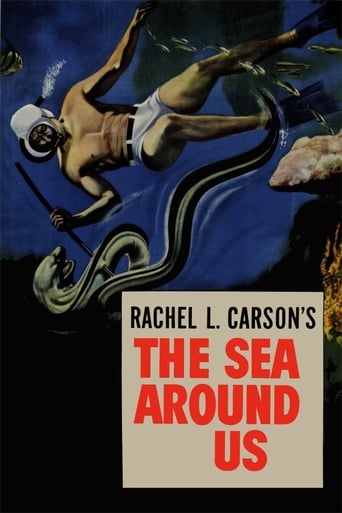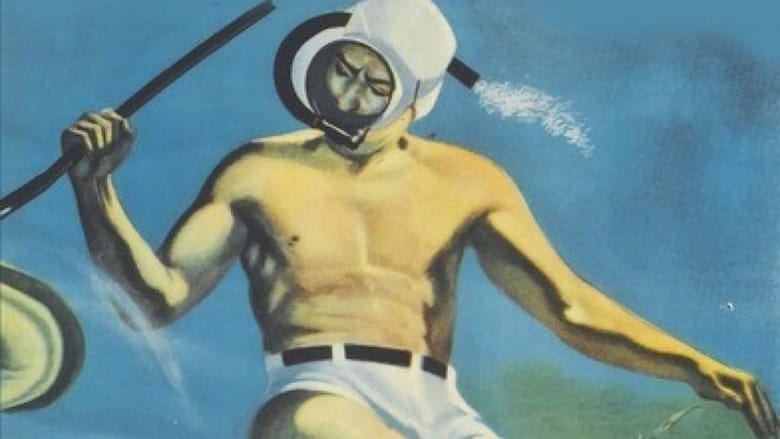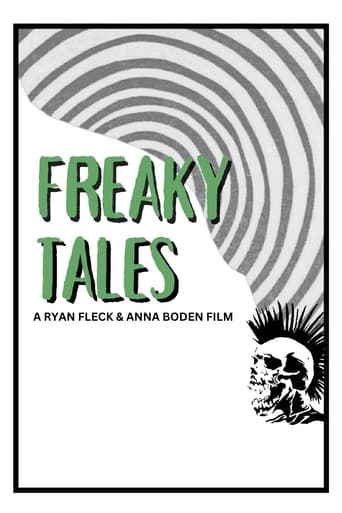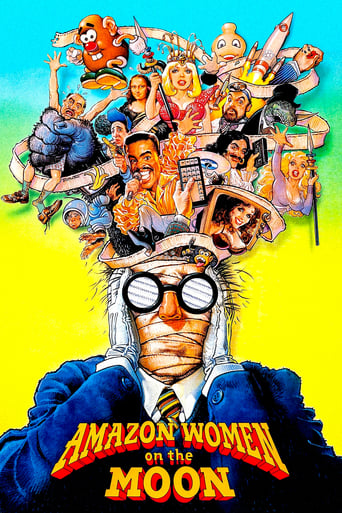

The Sea Around Us (1953)
Irwin Allen explores the mysteries of the deep blue sea in this Technicolor documentary. Based on Rachel L. Carson's famous study, this Oscar winning project investigates everything under the sea, from sharks, whales and octopuses to microscopical creatures and their coexistence in this vast underwater world.
Watch Trailer
Cast


Similar titles
Reviews
One of my all time favorites.
Excellent and certainly provocative... If nothing else, the film is a real conversation starter.
It's easily one of the freshest, sharpest and most enjoyable films of this year.
All of these films share one commonality, that being a kind of emotional center that humanizes a cast of monsters.
This is a shockingly awful 'documentary'....what the viewer sees is almost beyond belief.Plot in a nutshell: Underwater photographers reveal various aspects of sea life, with a healthy dose of human interference.Why is this shockingly awful? "The Sea Around Us" is not a documentary in any modern sense of the word. If by 'documentary', you imagine film-makers immersing themselves into nature and documenting what they see, you'll be very surprised by this film; because what you get here instead is mankind inserting himself into the sea, and more importantly the film, usually to the detriment of the sea life around him.Rather than being called "The Sea Around Us," a more accurate title would be "Man's Clueless Exploitation of the Sea." I don't think you can really have 'spoilers' for a documentary, so I'm not going to check that box, and really, what I'm about to say here SHOULD be known by anyone who thinks s/he might be interested in this 'nature' film.Imagine seeing a diver spearing a barracuda. Then the diver spearing a moray eel. Then the diver stabbing a small shark in its belly with a knife when it comes too close. This is in fact the film-maker's idea of a documentary, it seems - namely, 'Go deep-sea diving, and kill everything that crosses your path.' Anyone who enjoys nature and wants to learn more about it will likely be flabbergasted, horrified and stunned when watching this film, as I was.The carnage doesn't stop there. The viewer also sees an example of deep-sea trawler fishing, where the fishermen scoop up everything they can in a huge net, and whatever they don't want - 'bycatch' - simply dies in the process. We witness sponges being collected by men off the sea floor, and see salmon on their way to their breeding grounds instead being caught by fishermen positioned in strategic places along a river (what a river scene is doing in a film about the sea, well, don't ask me). We also see sharks being captured for display in aquariums and hermit crabs being trapped and captured, I assume destined for pet shops everywhere. The film is capped off - believe it or not - by a whale hunt, as the viewer watches a whale get harpooned and then mercilessly stabbed to death by the hunters. The narrator then unbelievably labels the dying whale a 'monster' not once, not twice, but three times. Never mind that the whale shown here was of no threat to humans. This film - or more accurately, this utter piece of trash - is an absolute horror fest for anyone who loves nature and finds beauty within it. 'Abysmal' is a pretty fair description for this mess.The fact that "The Sea Around Us" won an Academy Award for Best Documentary seems to be some sort of cruel joke. It speaks volumes about the stupidity of mankind and what it deemed as acceptable and good, just a few decades ago. Famous conservationist Rachel Carson's name was used to promote this film, but after seeing the finished product, she angrily distanced herself from it, and never sold the filming rights to any of her work again. Seeing this travesty of a film, that should come as no surprise.1/10. This is valuable only in showing the viewer what was deemed normal in 1950s America. It should serve as Exhibit A for "What to avoid when making a documentary." Would I watch again (Y/N): Hell no!
Unlike the nasty comments from previous reviewers, I found this movie to be utterly fascinating. I was 8 years old when I saw it on the big screen in 1953 -- beginning with the creation of the world sequence -- and would love to see it again. I was actually "pre-adolescent" then, so I guess I wasn't yet in the group that was so dismissed by one of the reviewers! Also, Al Gore was not "late to the game" inasmuch as he was only 5 year old when this came out. Sorry! He was just taking the premises of Carson's book forward a number of decades. This movie deserved the Oscar, and it should be required viewing for anyone concerned with the natural world and mankind's responsibility to take care of it.
Adaptation of Rachel Carson's book about the sea. I've never read the book so I don't know how faithful it is but some of this is fascinating. It starts out pretty badly with ponderous narration describing how the Earth (and sea) came into being. After that it lightens up pretty quickly and shows us various creatures of the sea including some incredible microscopic views of sea life. There's an interesting (and non-bloody) fight between a shark and an octopus. It also shows various occupations men have dealing with the sea like a shark walker and crab herder. The part showing different ways to capture fish (so they can be killed and eaten) might be troubling to some viewers but it's more of a sign of the time it was made than anything else. Narration aside this should be seen for visuals alone. Also the ending seems to predict global warming before it was discovered! I give it an 8.
This work conveys an appreciation of not only sea life but the oceans as an avenue of commerce, subject of artisans and realm of warfare. At a surface level it seems to run counter to the reputation of Rachel Carson as conservationist. It depicts, without judgment, not only the capture but the killing of large fish. At least one such scene was gratuitous. But as that was the attitude of the day (1953), it realistically depicted the attitude, if unwittingly. Still, because of the camera work, the detail and the both Atlantic and Pacific settings the viewer is left with a large chunk of the appreciation of that 70% of the Earth it's obvious Carson and screenwriter Irwin Allen (Flipper, Voyage to the Bottom of the Sea) posses.












